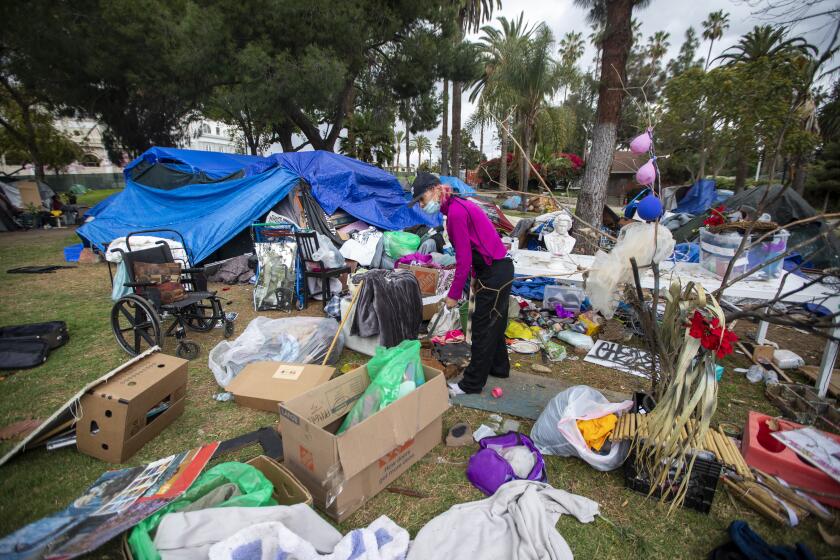Big spending from outside groups bolsters L.A. City Hall incumbents and favorites
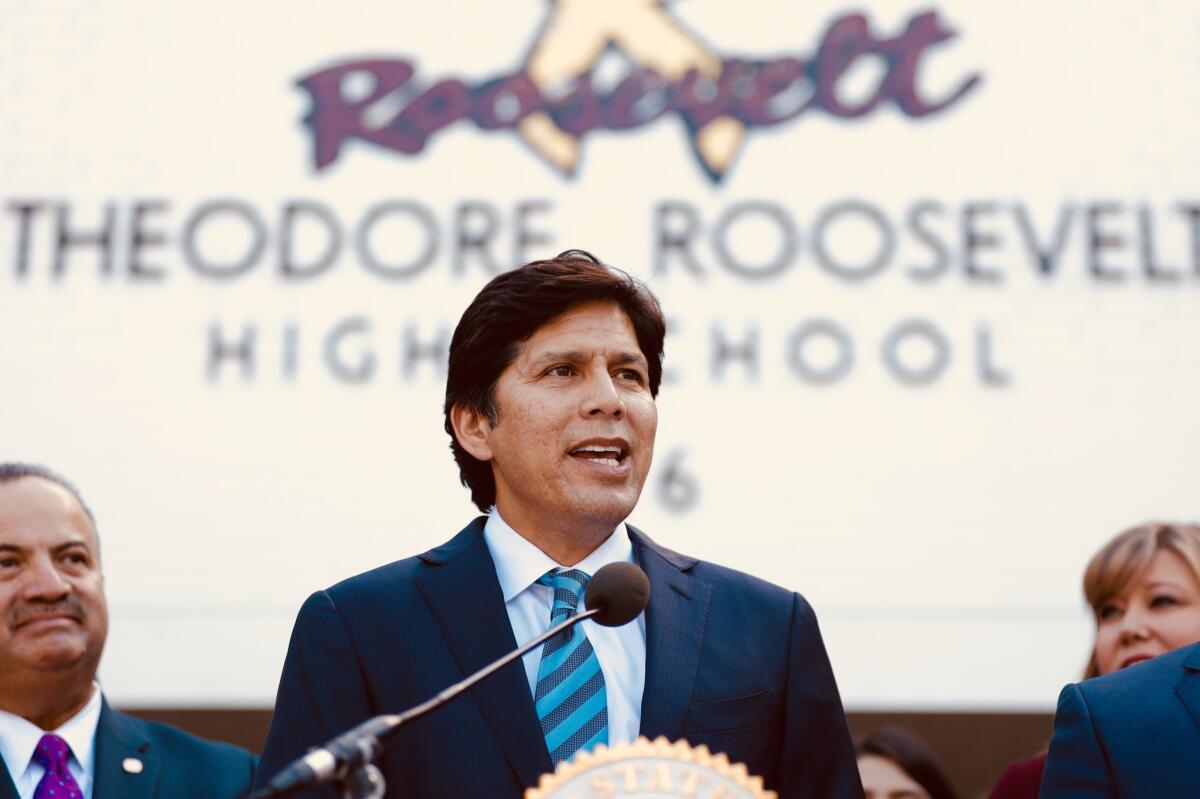
Technology entrepreneur Andrew Lee was barred from donating more than $800 to the campaign to help reelect Los Angeles City Councilman David Ryu — a city restriction meant to curb the influence of wealthy donors.
But Lee could give as much as he wanted to an independent committee backing the councilman, which is not bound by the same rules. Last month, Lee poured $100,000 into the Golden State Leadership Fund PAC, which has blanketed households with mailers that praise Ryu as a reformer and tout his record on homelessness.
Independent expenditure committees are not allowed to coordinate with the candidates or their campaigns, but can raise and spend unlimited amounts to support their chosen candidates, making them a muscular force in local elections. As of Wednesday, such committees had shelled out more than $1.2 million in Los Angeles City Council races.
That spending could be especially important as local candidates try to grab attention from more voters. Because Angelenos will weigh in on city and national races at the same time, campaigns expect higher turnout than in the past — and more noise to cut through for candidates.
“You have three times more voters in some of these elections,” said Derek Humphrey, a Democratic political consultant whose L.A. clients include Councilman Gil Cedillo and candidate Kevin de León. In light of that, “this money is going to be even more impactful.”
The bulk of the outside spending has gone to candidates who already had an edge in political fundraising, most of them incumbents like Ryu. The biggest beneficiary of independent spending so far has been De León, widely seen as the candidate to beat in the race for an open seat representing a council district that stretches from downtown to Eagle Rock.
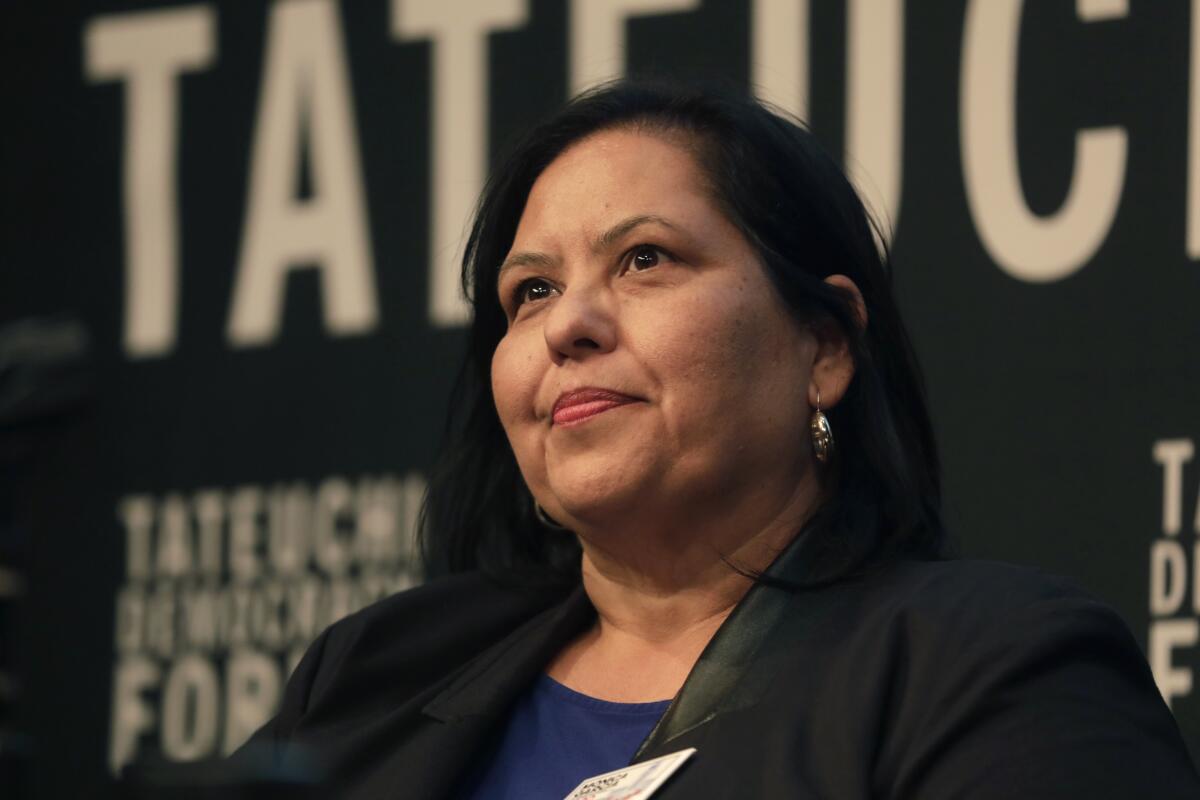
Outside groups had reported spending more than $480,000 as of Wednesday to support De León’s campaign to replace outgoing Councilman Jose Huizar — more than the combined amount of campaign donations raised by the four other candidates in the race.
Most of the money backing the former state Senate leader is from a committee sponsored by the Los Angeles County Federation of Labor, which represents over 800,000 members, including tens of thousands who work for the city of Los Angeles. If elected, De León would be responsible for helping approve salary and benefit packages for the city’s labor force.
In addition to the labor federation, the Southwest Regional Council of Carpenters and Change California Now, a super PAC that supported De León’s 2018 unsuccessful U.S. Senate run, are listed in disclosures as the committee’s major funders.
“De León has consistently stood with working people and has the record to show it,” said labor federation spokesman Christian Castro.
As of Wednesday afternoon, no other candidate in that race had benefited from independent spending. School board member Mónica García, who is also running for the seat, said there were “agendas” behind the outside money backing De León and that “it is telling that a recent Democratic-endorsed candidate for U.S. Senate needs a super PAC to compete in a local City Council race.”
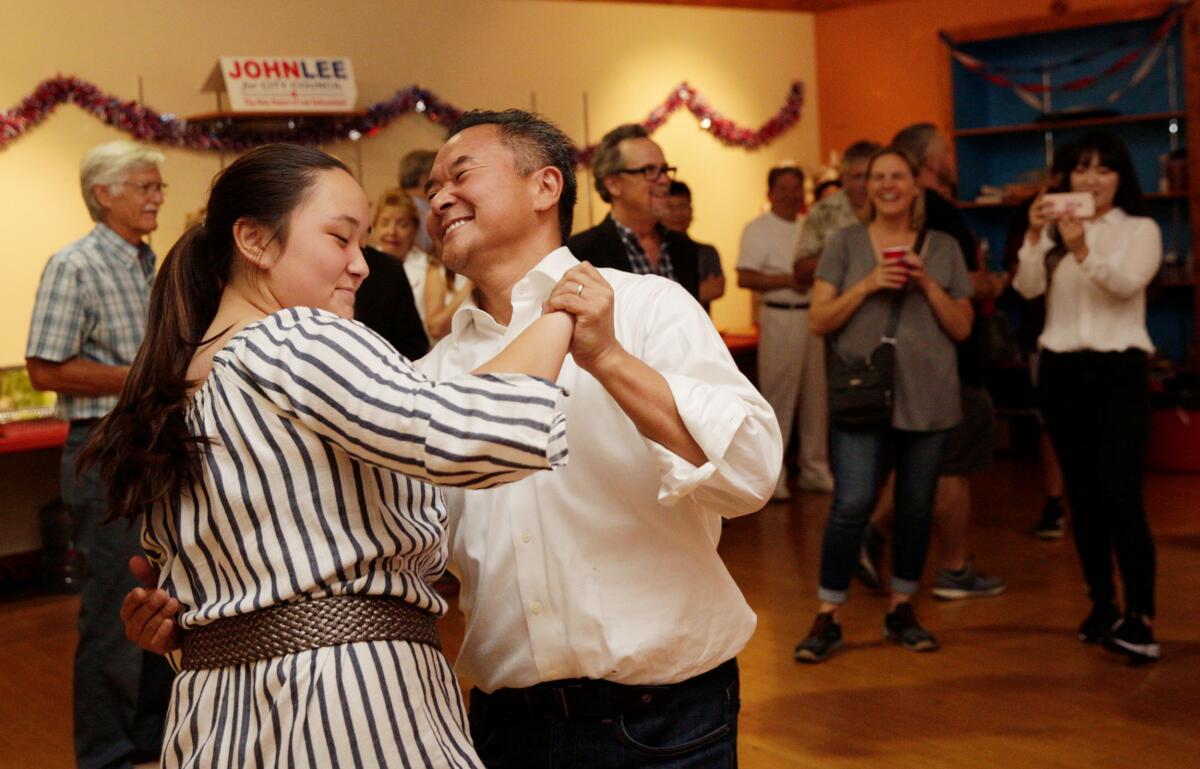
De León is also benefiting from spending by a committee backed by the city’s firefighter union, which lists billboard company Lamar as a major funder, and a committee supported by taxi companies.
As Councilman John Lee campaigns to keep his seat on the City Council, committees sponsored by labor unions and business groups had reported spending more than $270,000 as of Wednesday to back the incumbent and attack his opponent Loraine Lundquist, an astrophysicist and college educator who has won support from Democratic groups.
Working Californians, a committee sponsored by the union that represents workers at the Los Angeles Department of Water and Power, has been the most formidable presence in the Valley race. The DWP union has been at odds with Mayor Eric Garcetti over his Green New Deal and plans to phase out gas plants, which Lundquist has backed.
Lee won their backing by “supporting blue-collar workers who do the hard work of keeping our water clean, lights on and our energy bills affordable,” Working Californians spokesman Michael Trujillo said.
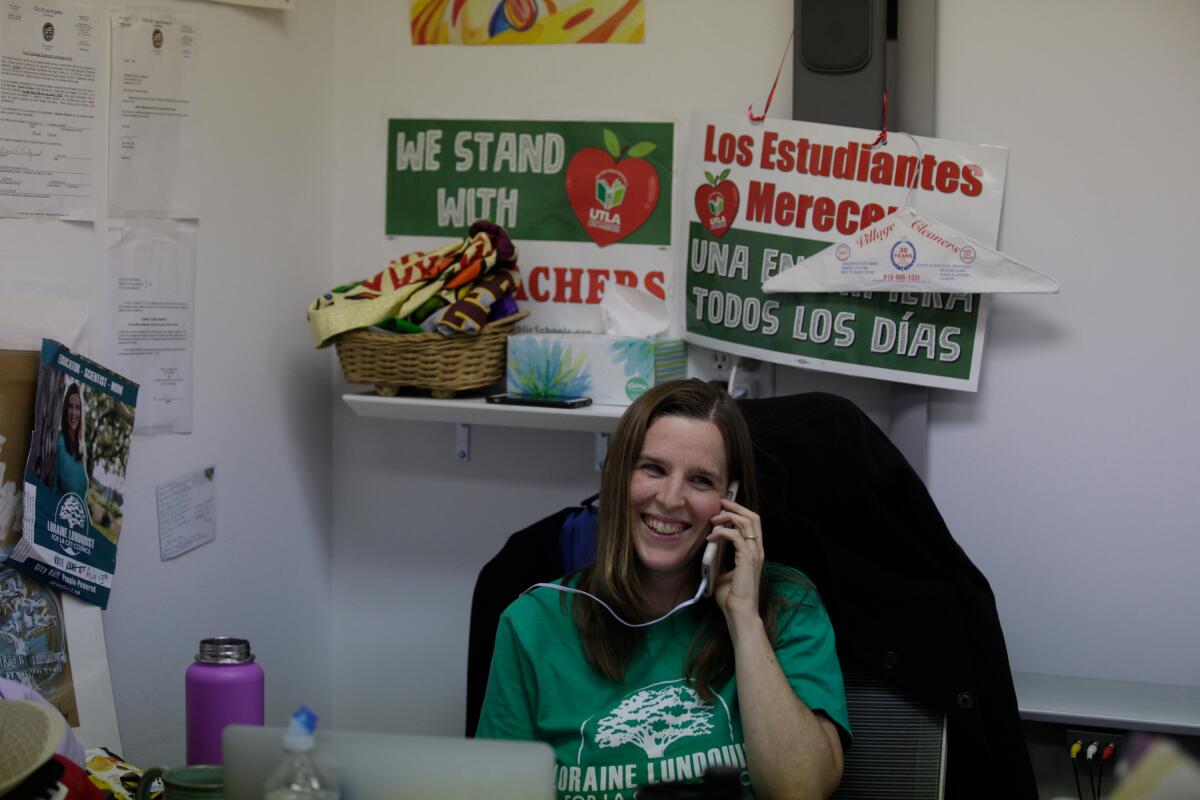
Bolstered by recent donations from the Los Angeles Police Protective League union — $150,000 — and the oil and gas company California Resources Corp. — $95,000 — it has sent out mailers asserting that Lundquist would “force L.A. residents to drive electric vehicles” and “ban gas-powered ovens, stovetops, dryers and water heaters.”
Trujillo said such claims were based on Lundquist supporting “zero net energy buildings” and “zero emission vehicles.”
Those attacks have resonated with some voters. “She has pipe dreams,” said Toni Gmuer, a Chatsworth resident who supports Lee. “She wants to turn all our gas stoves into electric stoves and our gas cars into electric cars!”
Lundquist says that isn’t true. Her campaign consultant Calvin Abbasi said that she “has no plans to legislate the elimination of gas cars by 2025,” as one mailer claims, nor does she want to ban gas appliances.
Instead, Abbasi said, Lundquist wants to invest in infrastructure to make electric vehicles more attractive and provide incentives for building retrofits. “She supports carbon-neutral electricity by 2025,” he added. “But apparently Loraine’s attackers don’t know the difference between electric cars and electricity generation.”
Oil companies have spent heavily on such attacks because “renewable and sustainable energy solutions jeopardize their monopoly and cause cheaper costs for consumers,” Abbasi said. “They don’t want that.”
The last time that Lundquist and Lee faced off, she had outside help too. Independent committees spent over $300,000 last year to support her and attack Lee, including one committee bankrolled heavily by hedge fund manager Aaron Sosnick. But this time there has been little independent spending for Lundquist — less than $1,000 reported as of Wednesday.
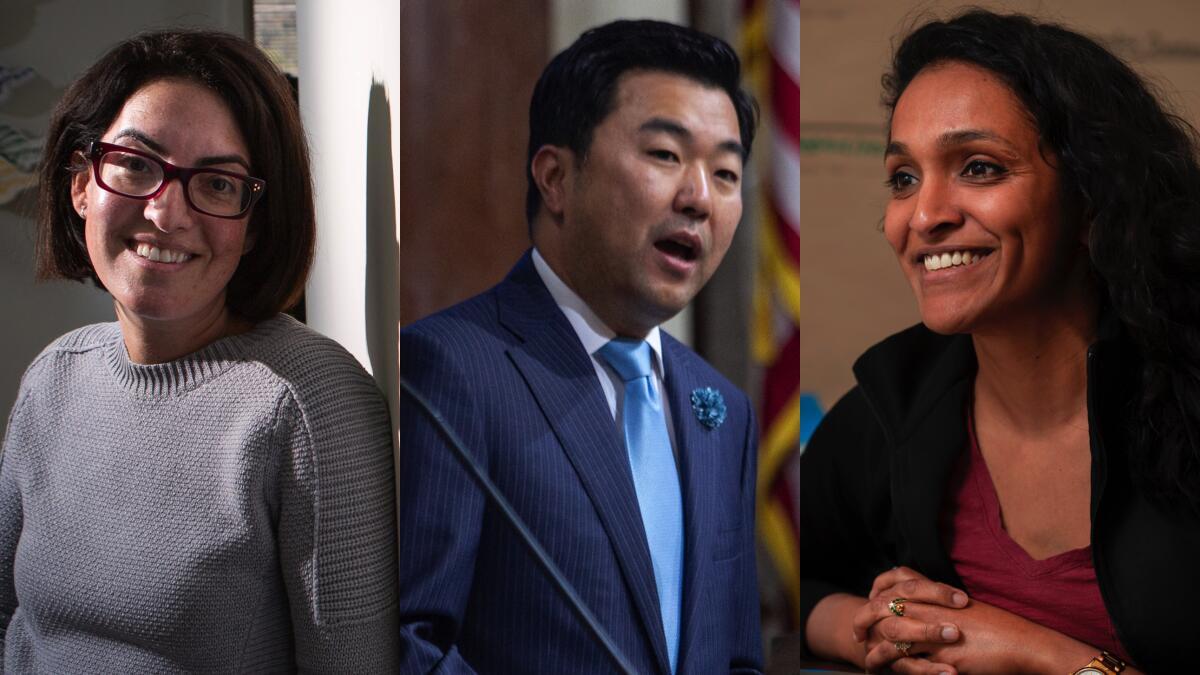
Ryu, who is competing against several challengers to keep his seat in a Silver Lake-to-Sherman Oaks district, had benefited from over $210,000 in spending by outside committees as of Wednesday.
Even without that spending, Ryu has dramatically outraised his opponents Sarah Kate Levy and Nithya Raman, bringing in more than $1 million in campaign contributions by the middle of February — roughly four times as much as either Levy or Raman.
As of Wednesday, the biggest chunk of the independent spending for Ryu had come from Golden State Leadership Fund, the committee funded by tech entrepreneur Andrew Lee — a VPN company founder crowned as successor to the imperial throne of Korea — and industrial coatings company founder Myung Hong. Hong, who gave $49,000 to the committee, is also a board member with the planned Korean American National Museum, a project that is leasing land from the city.
“I don’t think it’s ideal that two very rich men are trying to exert this much influence over our political process,” Raman said, arguing that “this kind of unregulated spending should be called out and disavowed.”
Ryu has also been backed by committees sponsored by unions representing police officers and firefighters.
Levy argued that the outpouring of independent spending to help Ryu undermined his claims to be a reformer, saying that he was “benefiting from the same secretive big money he is allegedly fighting against.”
Ryu campaign manager Estevan Montemayor countered, “You cannot find a member of City Council more committed to campaign finance reform.”
Montemayor said that although federal law restricts the Ryu campaign from controlling the actions of outside committees, Ryu wants to overturn a federal ruling that struck down government restrictions on such expenditures.
More to Read
Sign up for Essential California
The most important California stories and recommendations in your inbox every morning.
You may occasionally receive promotional content from the Los Angeles Times.












